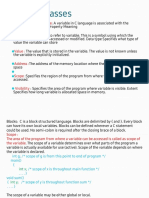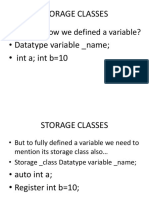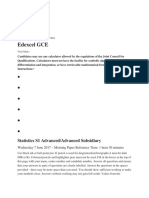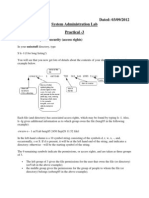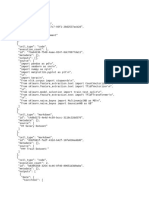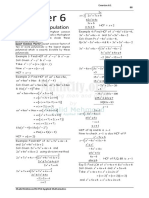0% found this document useful (0 votes)
15 views22 pagesC Parameter Passing & Storage
c programming
Uploaded by
ambika venkateshCopyright
© © All Rights Reserved
We take content rights seriously. If you suspect this is your content, claim it here.
Available Formats
Download as PPTX, PDF, TXT or read online on Scribd
0% found this document useful (0 votes)
15 views22 pagesC Parameter Passing & Storage
c programming
Uploaded by
ambika venkateshCopyright
© © All Rights Reserved
We take content rights seriously. If you suspect this is your content, claim it here.
Available Formats
Download as PPTX, PDF, TXT or read online on Scribd
/ 22
















